1. Exposing the Dark Side of Exotic Animal Trade
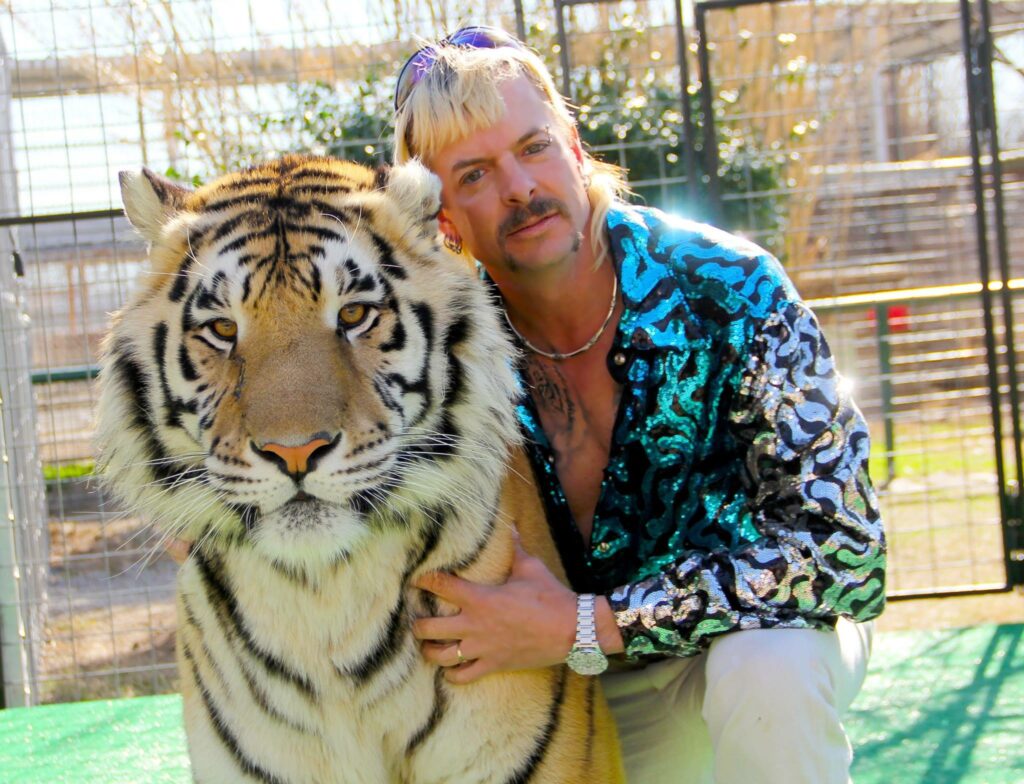
Before “Tiger King,” the world of exotic animal trading was somewhat hidden from the public eye. The documentary thrust this murky industry into the spotlight, but unfortunately, not in a way that highlighted the ethical concerns of keeping wild animals in captivity. Joe Exotic, Carole Baskin, and others showcased their tiger collections as a form of entertainment, but behind the scenes, the realities of animal abuse, illegal breeding, and unsafe conditions were rampant. The series helped expose these practices, but in doing so, it led to increased scrutiny and tougher regulations on exotic animal ownership. While some argue that the fame from the show encouraged the trade, others believe it sparked enough controversy to initiate change — ultimately leading to the downfall of many unethical players in the industry.
2. Glorifying Unqualified Animal Owners

Flickr
One of the biggest issues “Tiger King” helped bring to light was the number of unqualified individuals in the exotic animal industry. Joe Exotic and his rivals, like Carole Baskin, were portrayed as self-made entrepreneurs who, despite having no formal training in animal care, managed to run large operations featuring dangerous big cats. Their reckless behavior in handling these animals, including poor safety practices, only fueled the idea that anyone could profit from wild animals without the necessary expertise. The show’s portrayal of these individuals as larger-than-life characters led to a surge in interest and mimicking behavior, but it also led to greater awareness about the lack of regulation and the dire consequences that come with it — both for the animals and the owners themselves.
3. Boosting the Demand for Exotic Pets

FMT
“Tiger King” may have inadvertently boosted the demand for exotic animals as pets, especially tigers and other big cats. The outrageous antics of Joe Exotic and others gave the public a distorted view of what it was like to own such majestic animals. People watching the show became fascinated by the idea of having their own tiger, leading to an increased desire for exotic animals as pets. This demand only exacerbated the ongoing problem of illegal breeding, trafficking, and the rise of unqualified animal owners, creating even more stress on both the animals and the industry. While the show might have aimed to entertain, it also brought attention to how fragile the line is between appreciation and exploitation, and it fueled a dangerous desire for things that are better left in the wild.
4. Diminishing Conservation Efforts
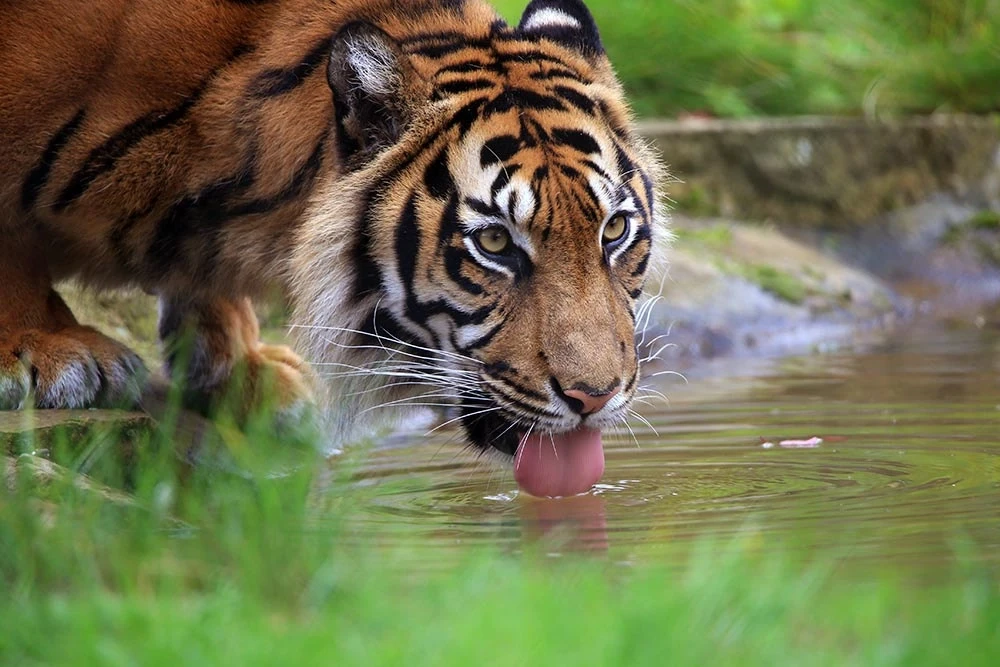
Animalia
While “Tiger King” undoubtedly brought attention to endangered species like tigers, it inadvertently shifted the focus away from real conservation efforts. The series largely presented a sensationalized view of the exotic animal industry, focusing on the drama and conflict between individuals rather than on meaningful discussions about preserving wildlife or the habitats these animals depend on. In turn, the narrative around conservation became muddled, as many viewers became more interested in the personal feuds of the characters rather than the bigger picture of preserving animal populations in their natural environments. As a result, serious conservation initiatives lost traction in favor of a celebrity-driven narrative about animal ownership that lacked the necessary depth and understanding.
5. Normalization of Animal Exploitation for Profit

Flickr
Joe Exotic and his competitors built their empires on exploiting wild animals for personal gain. Whether it was through entrance fees, exotic animal photoshoots, or breeding operations, they profited off the captivity of these animals. The popularity of the show only normalized this practice for a larger audience, sending the message that big cats and other exotic animals were just commodities to be bought, sold, and used for entertainment. This commercialization of wild animals has dangerous consequences, both for the animals themselves and for the long-term sustainability of the industry. By glamorizing the exploitation of these animals, the show made it easier for unscrupulous individuals to justify their actions as a way to make a profit, ultimately hurting the reputation of ethical zoos and wildlife sanctuaries.
6. Creating a ‘Wild West’ Mentality

Needpix
The chaotic and unregulated world of “Tiger King” paints a picture of an industry rife with lawlessness and disregard for animal welfare. The characters featured in the documentary, especially Joe Exotic, thrived in this environment, breaking laws without consequence and operating in a sort of “wild west” mentality. This lack of oversight in the industry is what enabled many of these individuals to run businesses without adhering to basic animal welfare standards. The show’s success only encouraged more people to enter the exotic animal business without concern for the ethical implications, resulting in even more wild animals in captivity, often in deplorable conditions. The normalization of this free-for-all mentality ultimately led to stricter regulations, as authorities began to crack down on the uncontrolled growth of the exotic pet industry.
7. Attracting Attention to Big Cat Breeding
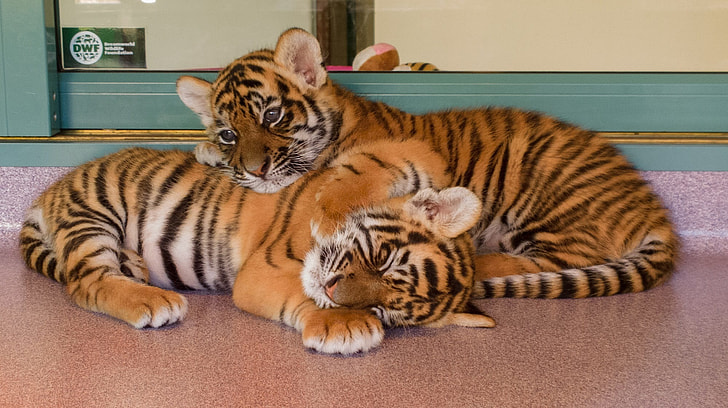
PickPik
One of the most disturbing elements of “Tiger King” was its focus on the breeding of big cats, specifically tigers. This aspect of the industry involves breeding animals in captivity for profit, often with little regard for their well-being. The show portrayed breeding operations as lucrative enterprises, giving viewers a behind-the-scenes look at how tigers were bred for the purpose of generating revenue. While the documentary helped bring attention to the issue, it also showcased the fact that tiger breeding was big business, prompting further interest from people eager to own tigers or start their own breeding operations. The increase in demand led to a greater strain on wild populations and emphasized the dark underbelly of the industry, where breeding for profit took precedence over animal welfare and conservation.
8. Undermining the Credibility of Animal Sanctuaries

Wikimedia Commons
While some characters in “Tiger King” like Carole Baskin claimed to be running animal sanctuaries, the series cast doubt on the legitimacy of such operations. It painted the concept of animal sanctuaries with a broad brush, blurring the lines between genuine conservation efforts and money-making ventures disguised as sanctuaries. Viewers were left questioning the authenticity of animal sanctuaries in general, as the show created a perception that all organizations in the industry were corrupt or exploiting animals in some way. This undermined the hard work of ethical sanctuaries and wildlife organizations, making it more difficult for those who genuinely cared for animals to stand out. The show contributed to the mistrust and skepticism surrounding wildlife sanctuaries, particularly when it came to their funding and practices.
9. Making Exotic Animal Ownership Seem Glamorous
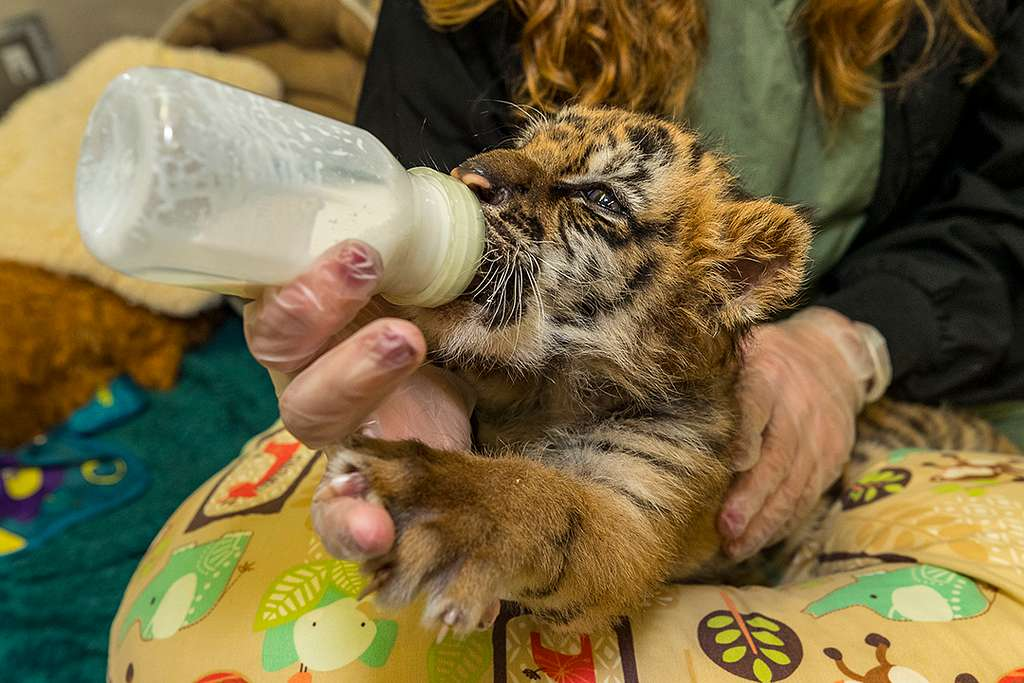
Picryl
The lives of the “Tiger King” stars, especially Joe Exotic and his flashy zoo, were depicted in a way that made exotic animal ownership appear glamorous and exciting. The show painted a picture of lavish lifestyles, including elaborate animal shows, celebrity interactions, and a certain level of fame that comes with owning such exotic creatures. This glamourized portrayal led some to romanticize the idea of owning wild animals, despite the massive ethical and logistical issues involved. The allure of fame and fortune, paired with the thrill of owning dangerous animals, encouraged more people to enter the industry, many without fully understanding the risks and consequences involved. In doing so, “Tiger King” contributed to the normalization of the idea that big cats and other wild animals belong in human environments, further fueling an industry built on exploitation.
10. Reinforcing Stereotypes of Animal Abusers
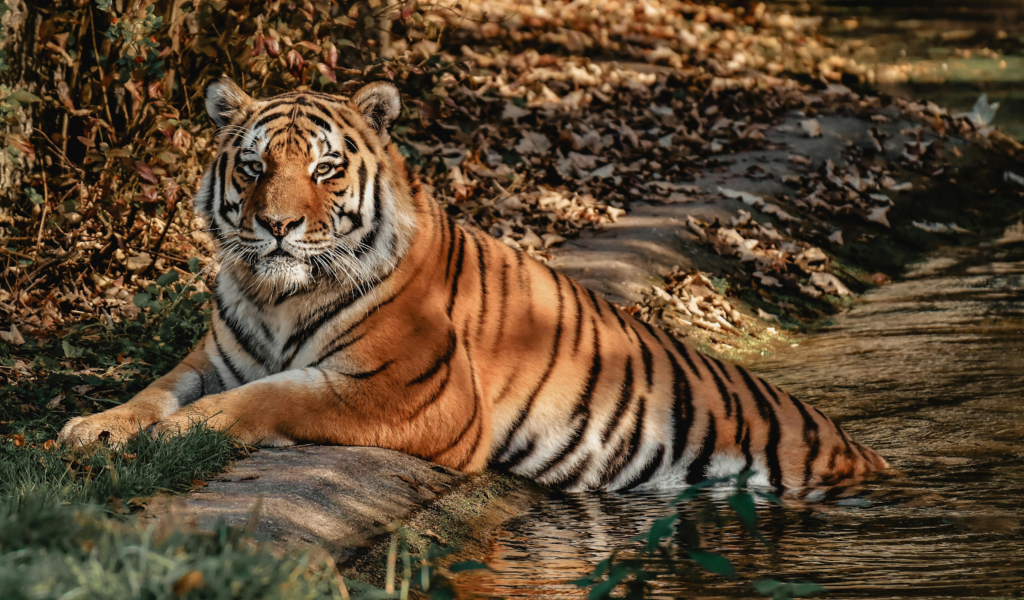
Pexels
“Tiger King” is filled with larger-than-life personalities who, for better or worse, embody the stereotypes of animal abusers. Characters like Joe Exotic, who kept tigers in cramped cages and bred them for profit, perpetuated the image of the “bad guy” in the exotic animal trade. Unfortunately, while the show made these individuals infamous, it also focused heavily on their personal lives, often presenting them as eccentric characters rather than addressing the serious issues of animal cruelty. By doing so, it allowed people to disconnect from the gravity of the situation, instead treating the subject matter as something more akin to a reality show than a real-world issue. This sensationalized approach ultimately detracted from the message about animal cruelty, reinforcing the stereotype of animal abusers as eccentric or misunderstood rather than as individuals profiting from the suffering of animals.
11. Fostering Online “Tiger King” Cults
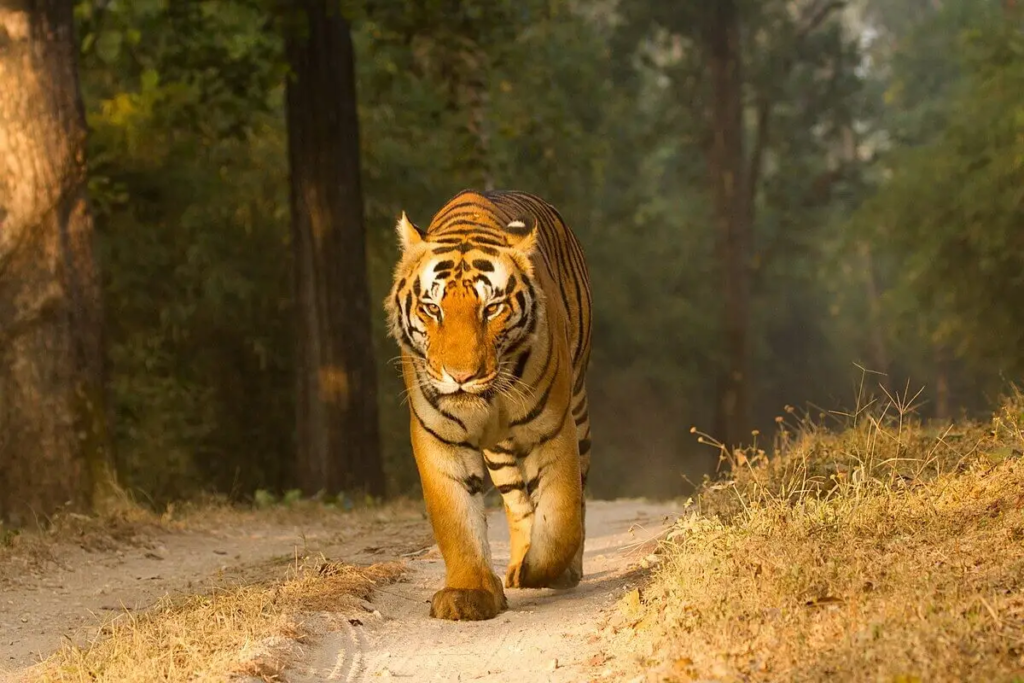
Animalia
The rise of online “Tiger King” fan communities only exacerbated the issue of exotic animal ownership. These fan groups, drawn to the drama and chaos of the documentary, began to idolize figures like Joe Exotic, turning them into heroes of sorts, despite their clear history of animal abuse. Some of these fan groups even celebrated the unethical practices portrayed in the show, leading to a normalization of dangerous attitudes toward wild animals. This celebrity culture surrounding the stars of “Tiger King” created a dangerous echo chamber, where their actions were dismissed or ignored in favor of personal adoration. Rather than condemning the abuse and exploitation of animals, some fans celebrated the outrageousness of the behavior, continuing to perpetuate a cycle of harm for the animals involved.
12. Public Pressure to Regulate Exotic Animal Ownership

Rawpixel
After “Tiger King” aired, public opinion about exotic animal ownership shifted dramatically. People became more aware of the suffering these animals endure in captivity, leading to mounting pressure on lawmakers to enact stricter regulations. While this has led to some positive change, it has also contributed to the downfall of various businesses and individuals who profited from the industry. The backlash from the documentary spurred legal action in many states, making it more difficult for unqualified individuals to acquire or keep exotic animals. This regulatory push, though essential for animal welfare, also impacted the livelihoods of many people who had invested in the exotic animal trade, including those who were portrayed as the “bad guys” in the series.
13. The Fate of the Exotic Animal Industry Post-“Tiger King”

Picryl
In the wake of the series, the exotic animal industry has struggled to recover. While some businesses closed their doors due to the newfound scrutiny, others found it harder to operate due to the changing legal landscape. While some businesses have been forced to shut down due to negative press and the resulting regulation, the show has also made it harder for those who legitimately care for animals to stand out. The industry’s reputation is forever tied to the circus-like antics of “Tiger King,” and the ripple effect has made it much harder for anyone to profit from exotic animals without facing significant backlash. As public awareness grows and legal action intensifies, the industry as a whole is likely to face an uncertain future, with many businesses struggling to find their footing.


